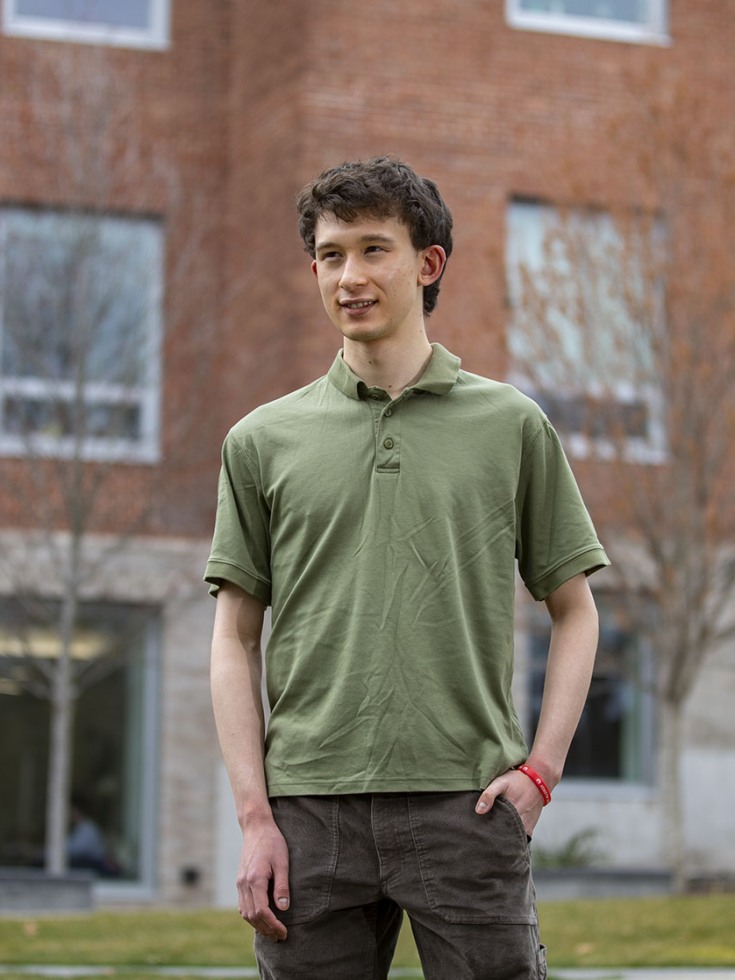PROVIDENCE, R.I. [Brown University] — Thomas Usherwood was still a high school student when he first became interested in biomedical engineering — a field that draws upon math, physics, biology and computer programming to devise innovative ways to improve health care.
That interest brought him to Brown, where he has been able to explore the many branches of math and science that inform the field, he said.
“To be successful in the biomedical engineering field, these days, it's important to have a background in a variety of subjects,” Usherwood said. “Brown is strong in a lot of the fields where I was really hoping to become skilled — from applied math to engineering to computer science.”
Through a series of long-term undergraduate research experiences, the junior biomedical engineering concentrator has expanded upon and explored concepts introduced in his coursework. In the lab of Anubhav Tripathi — a professor of engineering and molecular biology, pharmacology and biotechnology — Usherwood has helped to develop a method for extracting DNA from blood samples. He is also a member of the lab of Vikas Srivastava, an assistant professor of engineering, where he has helped to design a computer model that predicts the impact that human behavior may have on the efficacy of COVID-19 vaccines.
